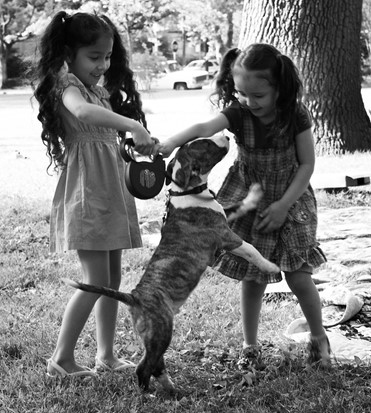It’s Hard Work Now—the Payoff Comes Later
I continue to be awed by an acquaintance of mine who is a mom to eight-year-old identical twin girls. Some people comment that having twins is like having two singletons born close together, but without the experience of parenting identical twins, a person might never understand how difficult daily parenting decisions are with two same-age children.
Let me give you an example. My friend decided to make a chart so that each of her daughters could work on behaviors that needed adjustment. When her daughters behaved well, they received a mark on the chart, and once the chart was filled, they earned a reward. The chart system worked well for the family in many instances, but my friend wanted to be prepared for a dilemma that she anticipated from past experiences—that one of her daughters would earn her reward faster than her sister. While this in itself is not problematic, in the past the twin who earned her reward first instinctively and unhesitatingly engaged her twin sister to play with her prize. But when the winner shares the prize before her sister improves her behavior, the chart method is not as effective.
I advised my friend to tell her daughters that the first one to reap her reward may not share it with her sister. This action sends an important message to both girls. The sister who earns her reward first learns that she does not have to share her bounty, and the other sister learns to be accountable for her own behavior. Learning how not to share reinforces the notion of boundaries and separation.
This may sound harsh and nonsensical to nontwin parents, so I must explain the rationale behind such a decision. Identical twin girls, especially, have the most difficult developmental path in terms of self-definition because they are so closely attached to one another. By introducing the notion that not everything belongs to both girls, parents can help twins conceptualize that feelings and needs should be articulated individually.
I repeatedly encounter this blurring of boundaries in adult twins whose parents have not helped them recognize their own feelings—both positive and negative—about being a twin. In fact, if parents cannot help their twins safely articulate their innermost emotions, these feelings are likely to be acted out nonverbally in destructive ways.
Just the other day I met with a nineteen-year-old identical twin girl recovering from a dangerous anorexic competition with her twin sister. Both girls developed a severe eating disorder at age fifteen. The race to be the thinner twin resulted in mutually destructive consequences for both of them. As one might expect, this young woman had very limited access to her inner life. She was astounded but also relieved to realize that her wishes to separate from her sister were expectable. We talked about how the competition to be the thinner twin was masking deeper issues about how to define her sense of self on her own rather than in relation to her twin sister.
Ironically, the sisters’ anorexic experience motivated them to attend different colleges, which worked out well for the most part. Sadly, one of the twins is still competing to win the thinner twin title; it is extremely difficult for the other not to engage. Both were drawn into this compulsive behavior because neither had ample time or space to develop a separate self.
Helping twins grow into their individuality from a young age will ensure healthier lives later on. Being able to celebrate differences and mutually recognize each other will help to mitigate the aggression and identity confusion that can afflict undifferentiated twin pairs.


